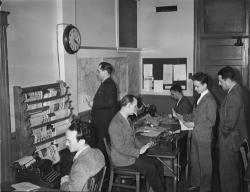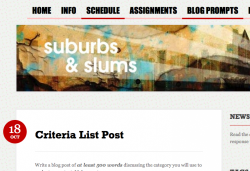
It took me a while to accept that I can never have all the answers. It took even longer for me to realize that this is a wonderful, fortunate fact. As an instructor, a tenacious part of me clung to the fantasy of a future of flawless knowledge and perfect leadership. Sure, I’d tell myself, I flail about now and again in front of my students, bewildered by a question or flummoxed by a comment I wasn’t expected, but that’s just because I’m relatively new to my course materials, to this emerging technology, to [insert convenient excuse here].









